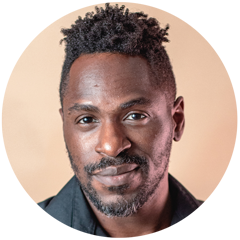No One Is Coming To Save Us. No One But Us.
I still remember when Barack Obama was elected and inaugurated as the 44th president of the United States of America. For many my age, and more importantly, for many Black men my generation, this was the first time politics of any sort really piqued our curiosity. A Black man was running for president! The unbelievable finally seemed to be happening. We turned on the television and saw someone not too unlike ourselves trailblazing across the country making promises of “Change” to everyday people in need. He understood the issues we faced. He understood the sensitivity of cultural nuance, and he made us feel heard. While his presidency was indeed historic and he did in fact bring significant and sweeping change, he was still a victim of politics and the unwavering molasses of institutionalism, systemic apathy and stagnation. His progressive and inclusive polices were subsequently compromised and later undermined by the next president and administration in what can only be described as bigoted retribution.
If there’s one thing I personally learned from President Obama’s presidency it is that no one person is going to save us. No one group of people, democratically-elected or otherwise, is directly responsible for implementing the change we need to see in the world. No one is coming to save us. No one but us.
Looking to the past helps give us context for what the future might bring, and potentially avoid the same pitfalls and failures of the past. I don’t know what the next few years will hold for the Black community and other minority and marginalized groups. What I do know is that we can’t simply sit back and wait for newly-elected leadership to debate, barter, and negotiate issues that are so crucial and critical to our everyday lives. We need people to lead that are from our communities, that understand our struggles and concerns, that are willing to tirelessly champion our challenges in the face of those whose interest it is to maintain the status quo. We need new symbols of change, new voices for change, leveraging the multitude of racial, ethnic, and cultural identities that make this country what it is…the soul of the nation.
The new administration has been extremely eager to highlight how almost every new cabinet position is historic in its appointment of “the first person of" something or other. I’m cautiously optimistic. As one of the many Black people who always finds himself in predominantly white spaces, justifying the merits of my own accomplishment, I know all too well that there is a very fine line between Representation and Tokenism. Being promoted without being empowered is an empty gesture, one that institutions in all spaces, of all sizes, use to placate nonconformists that would question the nature of their existence within the system.
Actions will always speak louder than words. We judge the worthiness and intention of a person, company, or government based on the actions they take to address the issues we face. So what is being done about the disparities in community policing and police brutality in our cities and homes? How is the criminal justice system actually being reformed and the school-to-prison pipeline dismantled, in the interest of Black and Brown people? How is higher education being made more accessible? Is the burden being lifted off mid-to-low income families in need of affordable housing and comprehensive healthcare? How are safe, equitable, diverse and inclusive spaces being created, and sustained in the workforce?
Pictured: Artist Dread Scott's performance art piece "On the Impossibility of Freedom in a Country Founded on Slavery and Genocide. Photo by Rich Hackman
Until we start to see and feel tangible action and change addressing these questions and issues we should reserve judgement, good or bad, on the state of this nation and administration. It is still too early to tell. In the meantime, we will continue to promote, support, and believe in the grassroots efforts of community leaders, advocates and change makers on the ground; they are the ones truly impacting lives, and making visible differences in the lives of everyday people.


